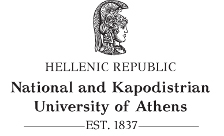Course: Compulsory
Title: Public Finance
Code: ECO302
Semester: B
Instructor: G. Kaplanoglou
Aims and Objectives
Public Finance is the branch of economics that explores the role of government in the economy. In this course, we will study the intellectual foundations that justify the existence of the public sector, and show how the tools of economics can be used to analyze government expenditure and tax policies and to answer important policy questions. We will also look at the Greek public sector actually does, and how it affects individual and corporate decision-making and welfare.
More precisely, the course covers basic concepts of welfare economics, the analysis of basic market failures like public goods and externalities, the theory of cost-benefit analysis, voting and other elements of public choice theory and an analysis of optimal taxation including aspects of tax incidence and the trade-off between efficiency and equity in designing optimal taxes.
Topics covered:
Introduction – the role of the state
Tools of positive and normative analysis
Market failures
Public goods
Externalities
Political economy – elements of public choice
Redistribution – conceptual issues
Cost-benefit analysis
Taxation
Taxation and income distribution
Taxation and efficiency
Efficient and equitable taxation
Course Books:
Rosen, H. T. Gayer, Β.Θ. Ράπανος, Γ. Καπλάνογλου (2009), Δημόσια Οικονομική: Σύγχρονη Θεωρία και Ελληνική Πραγματικότητα, Εκδόσεις Κριτική. (βασικό εγχειρίδιο)
Kay, J. (2007), Η Αλήθεια για τις Αγορές, Εκδόσεις Κριτική.
